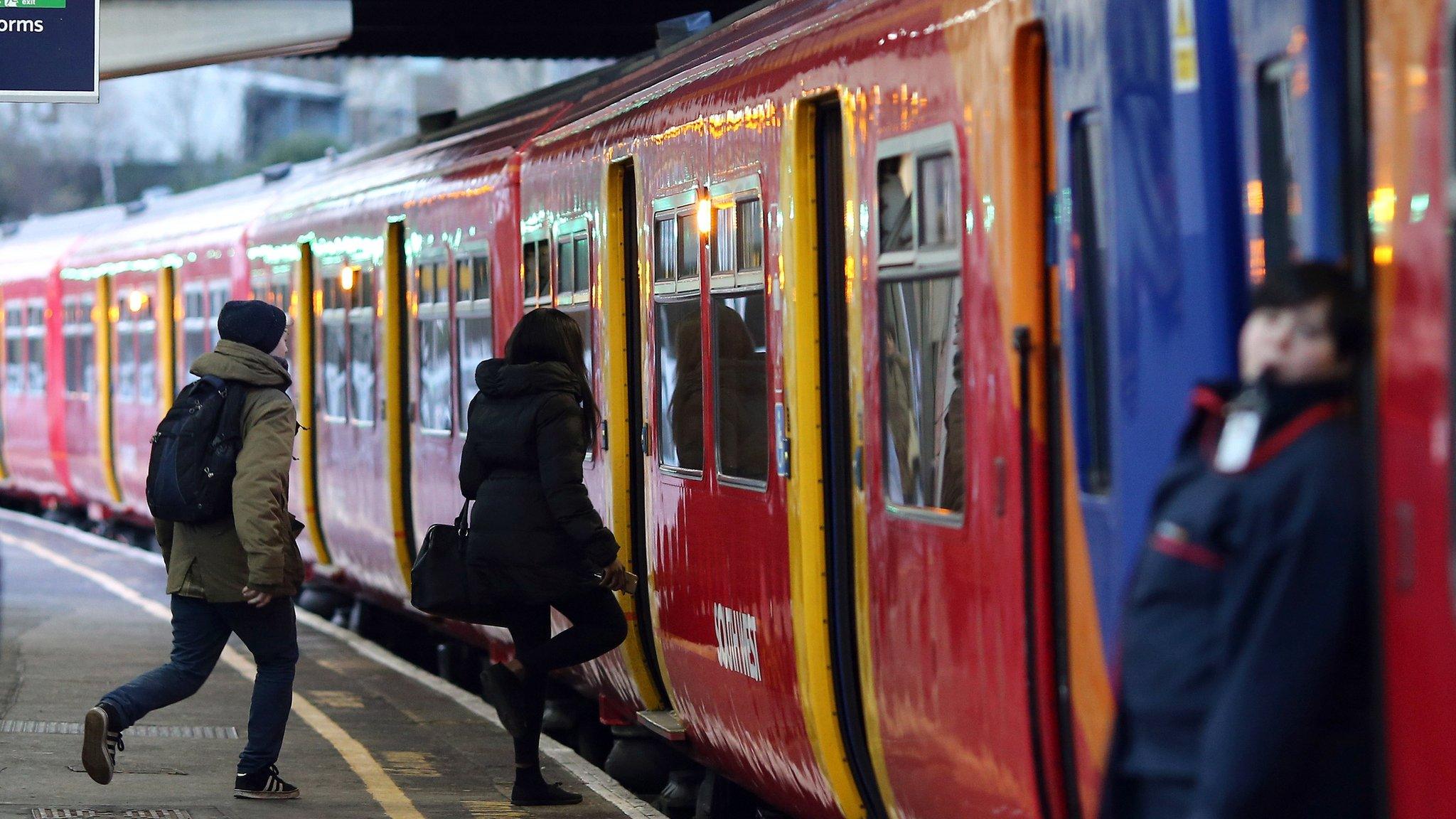Election 2015: Is transport a priority issue for Londoners?
- Published
- comments
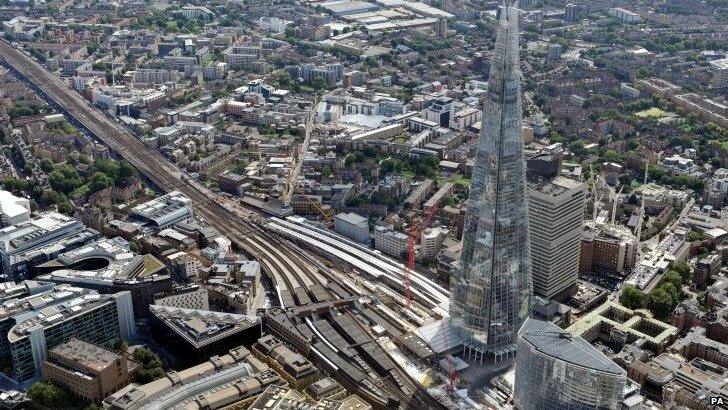
There is little 'clear water' between the main parties on transport issues, writes Tom Edwards
Recently, I saw a list of issues pertinent to voters in this election and transport came down the list at eighth or ninth.
Transport is the second highest expenditure in households and it affects everyone. So why the relatively low rating?
In London, of course, transport is devolved and run by Transport for London, external (TfL) under the direction of the mayor.
The mayoral election is not until next year and so much of Londoners day-to-day travel is not directly affected by the main parties' manifestos.
However, there are still policies which affect those living in the South East and they include some massive infrastructure projects and, it's fair to say, there does not seem to be clear water between many parties in terms of policies.
In many cases we have policy convergence.
Fares
After years of above inflation fare rises (to shift the cost burden from the tax payer onto the fare-payer) there seems to be a cross-party consensus to reduce the increases and rail policy arguably affects the South East more than other regions.
The latest figures from the Office of Rail Regulation, external for 2013/14 show that in the UK there were 1.6 billion passenger journeys.
Of those, 70% were by London & South East operators, 22% were by regional operators and 8% by long distance operators.
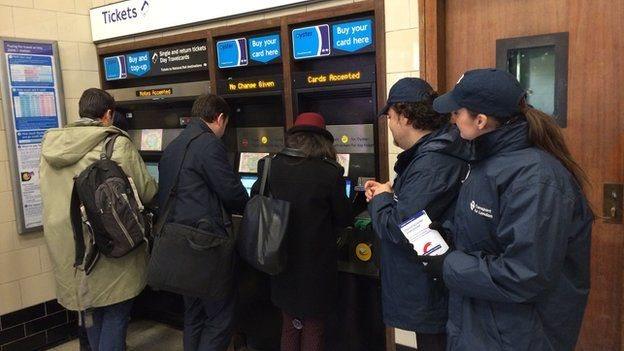
There is cross-party consensus to reduce increases on fares for passengers
The general trend now seems to be to link regulated fares (season tickets and peak fares) to inflation the Retail Price Index (RPI).
These are the 60% of tickets the government controls and from which it gets the farebox (the fraction of operating expenses which are met by the fares paid by passengers) from.
Some call this a "fares freeze" but it actually means unless there is deflation fares will continue to rise.
Also, it is the status quo as the coalition increased fares by inflation (2.5%) in 2015.
New infrastructure
The Conservative Party says it will link regulated tickets to inflation for the next five years if they win the election next month.
Labour says it will also do this for one year and then introduce a "strict cap". Thatt means scrapping "flex" - where train companies can increase some fares by up to 5% if they drop similar fares by the same amount.
They will also introduce a new legal right for passengers to access the cheapest ticket possible for their journey.
The Liberal Democrats says it will also link fares to inflation for the duration of Parliament.
The Greens will cut public transport fares by an average of 10% on 2015 prices.
The argument has been increases are needed for new infrastructure like upgrading London Bridge.
Incidentally, the Campaign for Better Transport, external says the formula should be scrapped and fares should be linked to the lower consumer price index (CPI).
HS2
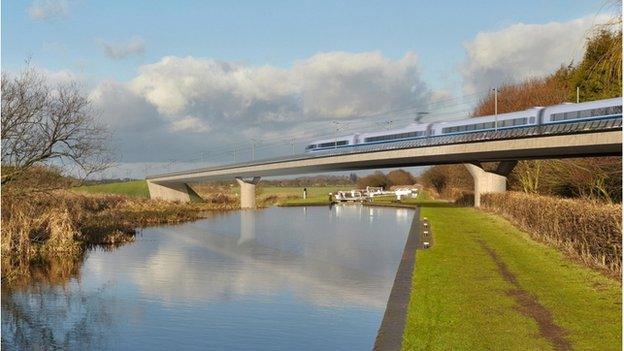
Again with HS2 there is very little to choose between the main parties. The high speed line to the North began life under Labour and continued under the coalition.
There is no doubt opposition to this project in Camden, outer London and the Chilterns but the local MPs there have also been extremely vocal and high profile in making their opposition known. The threat of anti-HS2 candidates has not materialised.
That means in the main parties there is support for HS2 at the moment but the Greens and UKIP want to scrap HS2.
Aviation expansion
Where and how to expand airports in the South East is politically toxic and has been around since the 1960s.
There is a lot of opposition to expansion although politically that seems to have been (so far) sated.
The Davies Commission, external into airports will give its recommendation on whether to expand at Gatwick or Heathrow in the summer and until then the Labour and Conservative's policy is to wait for that.
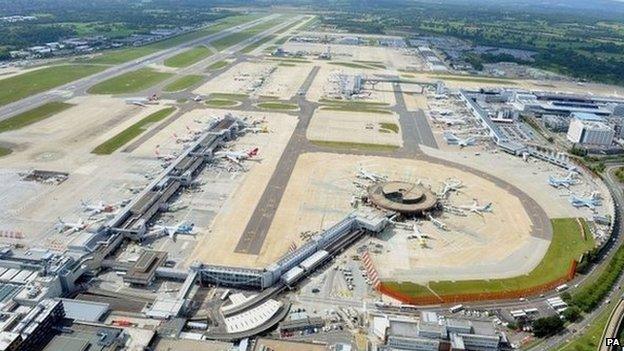
A second Gatwick runway is one of the options being considered by the Airports Commission
The Liberal Democrats, however, say they will oppose expansion of Heathrow, Stansted or Gatwick, or a new airport in the Thames Estuary.
Many MPs from all parties whose constituencies are affected by airports are opposed to expansion - others further afield back more runways.
The question is; will the party or parties who form the next government heed the recommendations from the Davies Commission?
If the Liberal Democrats are the only ones ruling out runways in the South East could that effectively rule them out of abiding by the commission?
What to do with runways in the South East will probably be the first big infrastructure project for the next government.
- Published15 April 2015
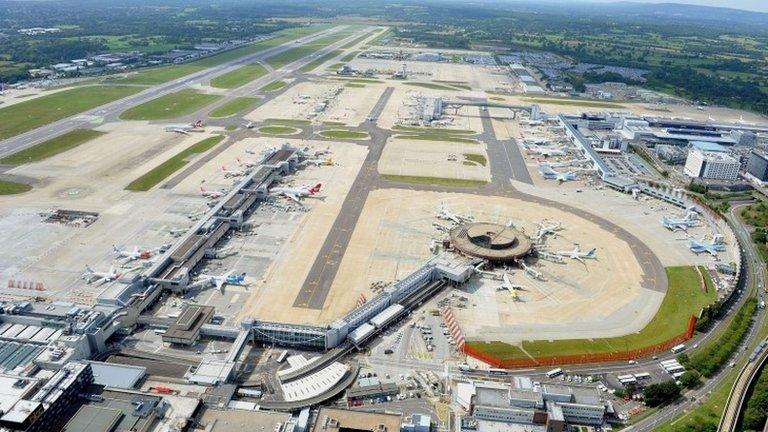
- Published10 April 2015
